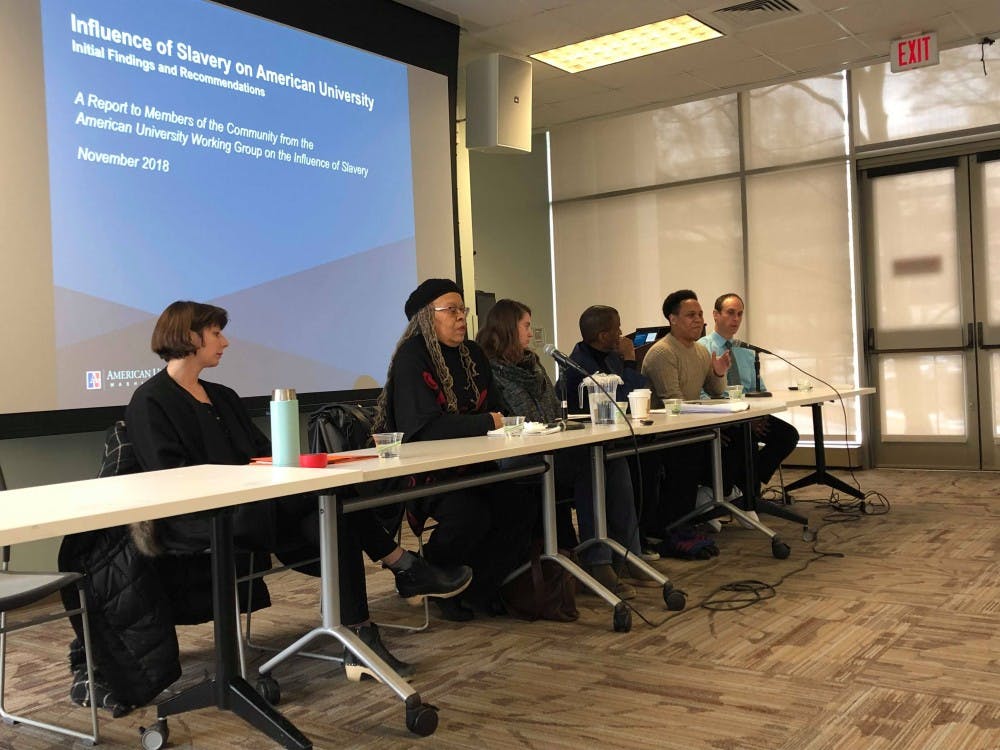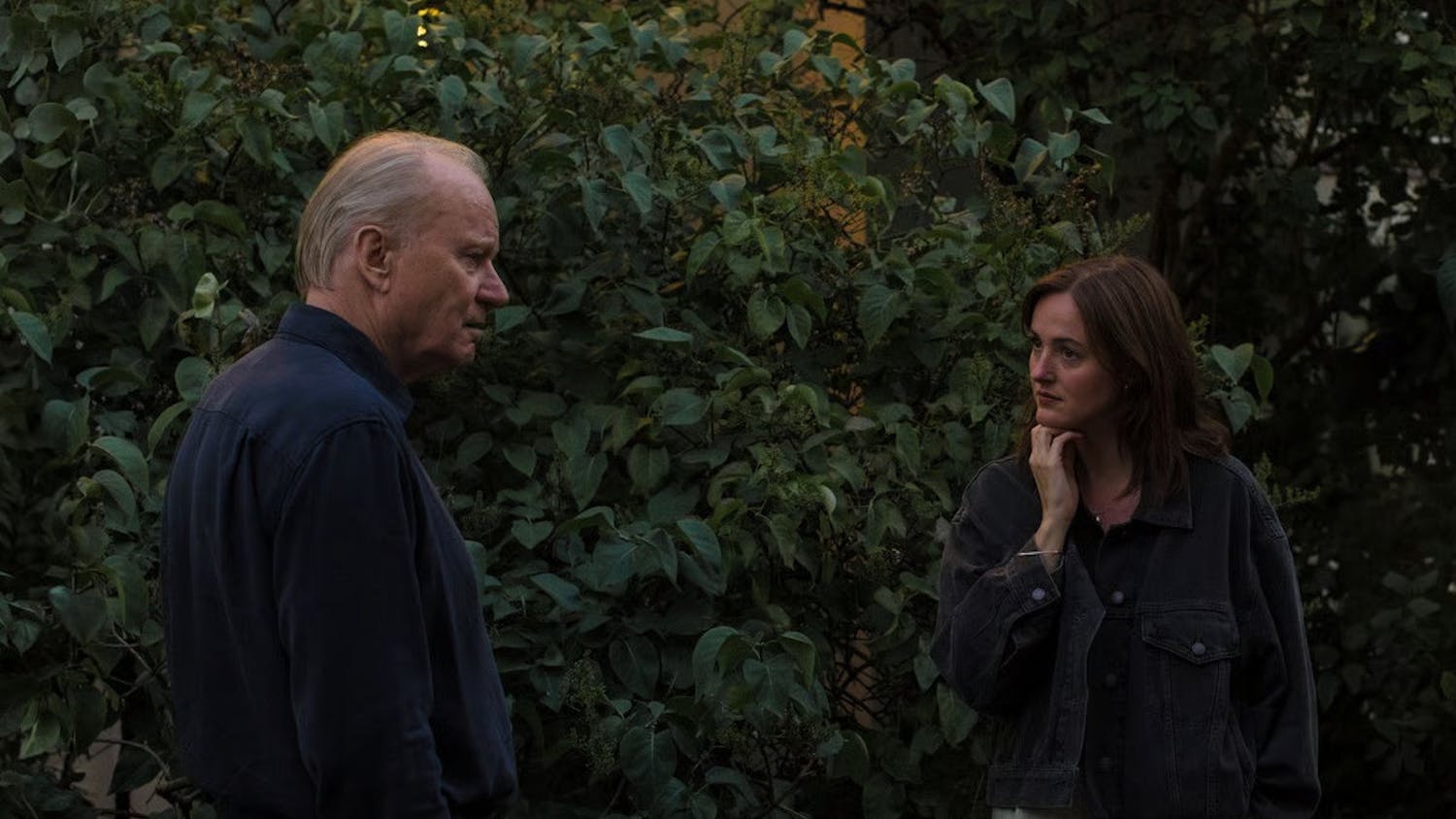Two years after the American University Working Group on the Influence of Slavery originally presented its findings, the group has resumed its work, now with an additional focus on the potential role of Indigenous peoples in the University’s founding.
AU announced the working group in 2018, consisting of eight members of the AU community. In January 2019, the group presented its first report at a roundtable event, and an exhibit in the University library was later unveiled, displaying AU’s historic ties to slavery.
“Anyone who knows about Washington, D.C., you hear about Potomac, you have these names that are there, that clearly tells you there was a very robust and rich presence of Indigenous people, first people of the land in our part of the country, but there’s very little that is known, very little that is talked about, it is nonexistent,” said Fanta Aw, AU’s vice president of campus life and inclusive excellence.
The working group was established after Nickolaus Mack, The Eagle’s former opinion managing editor, wrote a column in The Eagle in February 2018 after the University announced that the Founders Day Ball would take place at the Smithsonian National Museum of African American History and Culture. Mack wrote that AU’s founding “is a dishonest celebration without acknowledging its direct relation to slavery and the demolition and displacement of Northwest D.C.'s African-American communities.”
Mack researched the history of the University’s founding, ultimately finding that John Fletcher Hurst, the founding chancellor of AU and a bishop of the Methodist Episcopal Church, owned two enslaved people who he inherited from his father.
Since the working group presented its report, which states that Hurst inherited one or two enslaved people, it has not provided detailed updates to the AU community.
The original group’s three goals were to review preliminary research conducted by the University archivist and identify any gaps to ensure completeness, suggest recommendations to Aw for how to best address the history, and communicate findings to the AU community by creating constructive engagement and conversations around the issue.
Yet it remains unclear whether the group accomplished all of the goals it set forth in 2018.
Additionally, the group shared recommendations from its work, including an educational component, a memorial component and an anti-racism aspect.
The educational component included a public release of findings and an online resource.
However, there is currently no memorial on campus that recognizes AU’s connections to slavery.
Aw said that COVID-19 delayed the process of the University completing this task. However, the University’s operations were not interrupted by the coronavirus until more than a year after the group presented its findings at the roundtable.
Aw said that the group revived itself in fall 2020 with a new plan to expand its work into researching the Indigenous history of the area now occupied by American University. Currently, the group is in its initial planning stage. Elizabeth Rule, a former AU postdoctoral fellow and director of George Washington University’s AT&T Center for Indigenous Politics and Policy, will help lead the group’s work.
“This is work that needs to be ongoing and work that needs to be embedded in our academic work, academic institution, to ask ourselves the big questions, and to be able to answer those big questions becomes important,” Rule said. “When we were doing the first round, we gave the major release, and all of that we felt was important because there have been some initial stories and things that were there. And we wanted to make sure that folks knew that that work was going on.”
Both Rule and Aw hope that the findings of the group’s past and future work eventually become part of the University’s first-year curriculum, such as through AUx2, or campus tours for prospective students.
Aw said that while the individual instructors for AUx2 can choose to add the University’s history into its curriculum, it has not been formally adopted into the syllabus of the class. However, Aw said that she sees this as an opportunity for increased anti-racism work within the class.
In July 2019, Rule created a mobile application, the Guide to Indigenous DC, a digital mapping project to track significant Indigenous sites in the district.
“I’m working to create another iteration of the digital mapping and mobile application project, called the Guide to Indigenous AU,” Rule said. “We are looking to get involved in orientation materials for first-year students for faculty and staff.”
Aw declined to provide any documentation of the group’s work thus far, saying that the group was not yet ready to share its findings.
“In this specific instance, we did not want to make an unnecessarily big splash on it, we wanted the work to be done,” Rule said. “And as the work is progressing, to have them as this group report out on the work that's progressing was the position that we decided to take in this specific round.”





